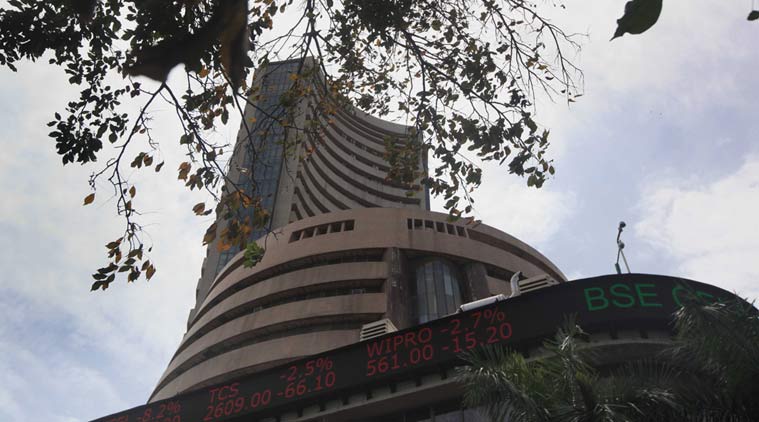Stock markets buoyed by domestic investors
September 19, 2018 | Expert Insights

India’s stock market had become accustomed to foreign investors serving as a reliable engine of funds, with a net $59bn of money flowing in over the past six years.
However, there has been a reversal of this trend with global investors losing confidence in India’s stock markets.
Background
A stock market is where investors meet to buy and sell shares. It is the place where stocks and bonds are bought and sold. There are 16 stock exchanges (bourse) in the world that have a market capitalization of over US$ 1 trillion each. The New York Stock Exchange and the NASDAQ are the top stock exchanges in the US and the world. The London Stock Exchange, the Japan Stock Exchange, the Shanghai Stock Exchange and the Euronext are some of the biggest exchanges.
The Bombay Stock Exchange in India is ranked 11 globally. The stock market is considered a key section of a free-market economy. It provides companies with access to capital in exchange for giving investors a slice of ownership. If an economy is growing then output will increase and so will profitability. Hence, investors also see a spike in their income.
However, so far this year that trend has reversed, with the market on course for its first year of net foreign outflows since 2011 — contributing to a hefty decline in the value of the rupee as the currency has plumbed to its weakest level versus the US dollar in recent weeks.
Analysis
Amid the foreign selling, India’s Nifty 50 stock index has climbed to a succession of record highs this year. Up 7 per cent year to date, the market remains near its all-time peak even after a softening in late August.
These contrasting movements are the latest sign of the Indian stock market being increasingly driven by domestic investment, while foreign investors have a less powerful role to play. This is despite foreign investor’s broadly positive view on the country’s economic outlook.
For centuries, Indian households have kept their savings overwhelmingly in property and gold. However, growing financial literacy, coupled with reduced fears of inflation, is now driving a surge of domestic money into the stock market.
Indian equity mutual funds had net inflows of Rs780bn ($10.7bn) in the first eight months of this year, according to industry trade group AMFI, easily outweighing the net selling of Rs59bn by foreign equity investors.
The domestic buying has driven the Indian market’s valuation to unusually high levels. On a price-to-earnings basis, the Nifty now enjoys a 60 per cent premium to the emerging markets average.
It is concern about overheated valuations, rather than India’s economic outlook, that have caused foreign investors to pare their exposure to Indian stocks.
The rupee’s slide has prompted foreign equity investors such as Robert Secker, at M&G Investments, to focus more on sectors such as IT services, which benefit because their revenues are mostly earned abroad and their costs are largely domestic.
India has its own trade headaches — notably its heavy reliance on imported oil, where rising prices have been a key factor behind the growing current account deficit that has helped sap the rupee’s value.
Counterpoint
Some recent policy changes have also boosted a negative outlook towards the Indian stock markets. These include new policies such as a new bankruptcy code which was predicted to boost credit growth but has failed to do so.
In addition, Indian regulators recently sparked outrage by announcing rules that barred entities owned by Indian-origin people from acting as foreign portfolio investors. An advisory panel has since advised the regulator to reconsider the move, but no reversal has yet been announced. Read more about SEBI’s latest circular on foreign-owned portfolios here.
Assessment
Our assessment is that SEBI will intervene to prevent a total withdrawal of foreign investments from Indian capital markets. Whenever the stock market is booming, the regulators tend to adopt an indifferent attitude towards foreigner investors. We believe that such heavy-handed interventions will unsettle foreign investors. However, we also feel that the soaring valuations driven by domestic inflows will having a more meaningful restraining effect on foreign investment.








Comments